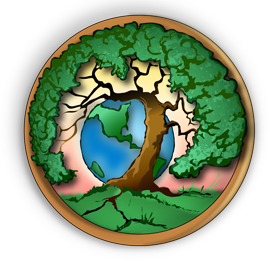 I just read a recent article by P.I. Postnikov “Ecocentric Ukraine: a vision” which I recommend: https://www.culturechange.org/
I just read a recent article by P.I. Postnikov “Ecocentric Ukraine: a vision” which I recommend: https://www.culturechange.org/
Conclusion: Survival has been elevated to an urgent collective concern, to look at the big picture and visualize a radically different future. In almost every case in the past, revolutions have really been a reshuffling of power holders such that reforms are couched as a revolutionary approach. But if the same old cultural and social ethics persist, such that short-sighted rampant exploitation of nature is encouraged for short-term (if democratic) gain, the end result is where the discredited capitalist and imperialist nations are headed: collapse and general extinction for life as we know it.
I just ordered a book the article mentioned, R. Catton, Jr’s 2009 book “Bottleneck: Humanity’s Impending Collapse”, Catton’s conclusion is that most of humanity’s population will disappear in the current century and our current technological civilization will collapse. I agree with Catton that what we currently call ‘civilization’ will collapse. I am still hopeful that a larger number of humanity will survive then in his dire prognosis. I have always been an optimist.
Being an astute student of permaculture (and related sustainable systems) I am confident that humanity could continue to live on the planet in relatively large numbers and rehabilitate the planet’s ecological systems. Alas, I think that the current political/financial/police state powers will not allow this to happen in time and so a large-scale population collapse is going to ensue and it won’t be pretty.
The areas to survive this global collapse in reasonable condition are likely to be pockets of tough hunter-gatherers and agriculturists in the remoter parts of the globe. Parts of rural North America might come through somewhat intact if they can pull together local economic systems based on local natural resources and a reasonable level of community cohesiveness. I am hoping that some of the rural communities of the Pacific Northwest where I live will be among the survivors.
To this end I have devoted my life to studying, developing and teaching sustainable systems. In my global search for relevant sustainable systems, permaculture is still the best I have found. I highly recommend that people interested in their family’s and communities’ survival study permaculture. The best way to do this is to take a good-quality permaculture design course. There is currently a free permaculture design course being offered on the internet which is very poor quality.
I will be teaching two or three permaculture design courses (PDC) in 2014.
A PDC on Kauai, February 22 to March 9, which will have an emphasis on the Hawaiian Islands and the subtropics.
A 6-weekends PDC in Hot Springs, Montana which will focus on the Inland Pacific Northwest bioregion. April thru June.
A two-week PDC in Michigan this summer, still to be confirmed.
A lot of people are talking about the problems we face. Fewer of us are seriously studying the solutions. There is a plethora of information about permaculture on the internet, in books and hundreds of PDCs are offered around the world every year.
Towards solutions,
Michael Pilarski







 MICHAEL “SKEETER” PILARSKI is a life-long student of plants and earth repair. His farming career started in 2nd grade and his organic farming career began in 1972 at age 25. Michael founded Friends of the Trees Society in 1978 and took his first permaculture design course in 1982. Since 1988 he has taught 36 permaculture design courses in the US and abroad. His specialties include earth repair, agriculture, seed collecting, nursery sales, tree planting, fruit picking, permaculture, agroforestry, forestry, ethnobotany, medicinal herb growing, hoeing and wildcrafting. He has hands-on experience with over 1000 species of plants. He is a prolific gathering organizer and likes group singing.
MICHAEL “SKEETER” PILARSKI is a life-long student of plants and earth repair. His farming career started in 2nd grade and his organic farming career began in 1972 at age 25. Michael founded Friends of the Trees Society in 1978 and took his first permaculture design course in 1982. Since 1988 he has taught 36 permaculture design courses in the US and abroad. His specialties include earth repair, agriculture, seed collecting, nursery sales, tree planting, fruit picking, permaculture, agroforestry, forestry, ethnobotany, medicinal herb growing, hoeing and wildcrafting. He has hands-on experience with over 1000 species of plants. He is a prolific gathering organizer and likes group singing.